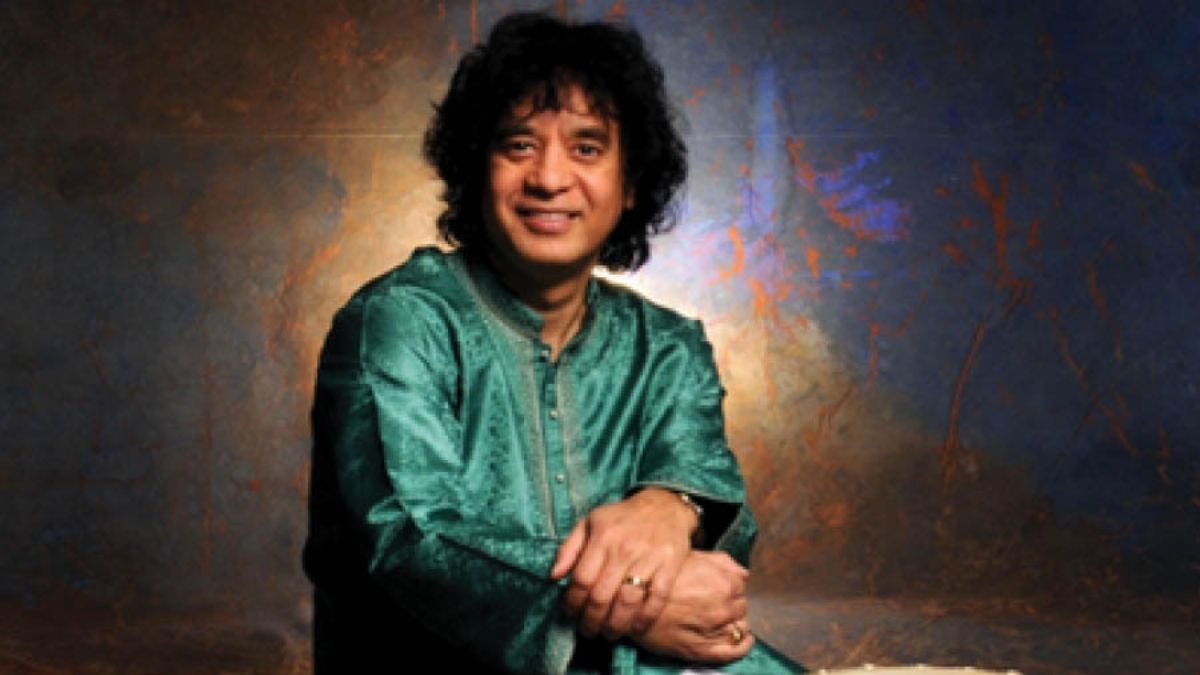Tabla maestro Zakir Hussain, who passed away at the age of 73 in the United States on December 15, leaves behind a legacy that transcended borders and generations. Born on March 9, 1951, in Mumbai, Zakir Hussain was destined to be a musical genius. As the son of the legendary tabla player Ustad Alla Rakha, Zakir’s life was immersed in rhythm from the very beginning.
Zakir Hussain’s tryst with music began at a very young age. Recognized as a child prodigy, he was trained rigorously under the watchful eye of his father, Ustad Alla Rakha. By the time he was 12 years old, Zakir was already performing alongside some of the greatest musicians in India. His unparalleled discipline and dedication to the tabla made him a standout performer even in his teenage years.
Hussain’s talent soon gained global attention. In the 1970s, he became one of the first Indian classical musicians to collaborate extensively with Western artists. His groundbreaking work with John McLaughlin in the jazz-fusion band Shakti brought Indian classical music to the forefront of the global music scene. Zakir’s collaborations with artists like Mickey Hart of Grateful Dead and George Harrison opened new doors for Indian percussion, blending classical rhythms with rock, jazz, and world music.
Zakir Hussain’s career spanned over five decades, and he remained one of the most celebrated tabla players in history. His accolades include:
- Padma Shri (1988) and Padma Bhushan (2002) – two of India’s highest civilian awards.
- The Grammy Award (2009) for his collaboration on the album Global Drum Project.
- Numerous honors like the Sangeet Natak Akademi Award and the National Heritage Fellowship in the US, recognizing his contribution to art and culture.
Hussain’s performances on the tabla were characterized by their precision, complexity, and soul-stirring beauty. Whether it was solo concerts or collaborations with legends like Pandit Ravi Shankar, Ustad Amjad Ali Khan, and Pandit Hariprasad Chaurasia, Zakir always elevated his craft.
Apart from performing, Zakir Hussain also contributed immensely as a teacher. He conducted workshops, collaborated on film scores, and inspired a new generation of musicians. His ability to combine traditional Indian rhythms with modern sensibilities made him an icon for classical and contemporary music enthusiasts alike.
Zakir Hussain married Antonia Minnecola, a Kathak dancer and teacher, and they shared a deep bond rooted in music and the arts. His two daughters have also pursued creative fields, carrying forward the artistic lineage of their illustrious family.
Zakir Hussain’s passing marks the end of an era for Indian classical music. His mastery of the tabla and his ability to transcend cultural boundaries made him a true ambassador of Indian rhythm. From prestigious stages in India to global platforms like the Carnegie Hall and the Royal Albert Hall, Zakir’s music touched the hearts of millions.


